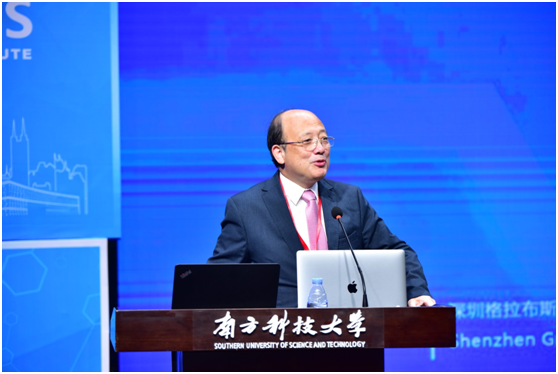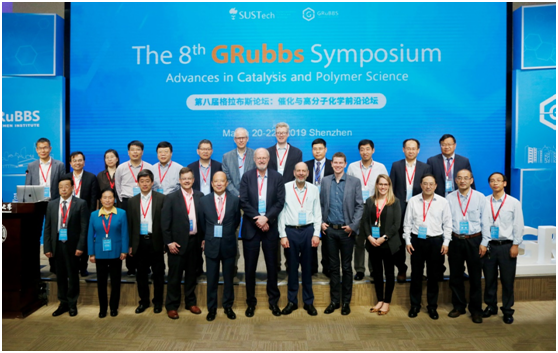The 8th Grubbs Symposium held at SUSTech
2019-03-21
On the morning of March 21st, 2019, the 8th edition of the Grubbs Symposium opened at Southern University of Science and Technology (SUSTech). Robert H. Grubbs, co-recipient of the Nobel Prize in Chemistry in 2005, the Victor and Elizabeth Atkins Professor of Chemistry at the California Institute of Technology (Caltech), foreign associate of Chinese Academy of Science, and SUSTech President Shiyi Chen attended the opening ceremony.
The theme of the symposium is “Catalysis and Polymer Science”, sponsored by the Shenzhen Grubbs Institute (SGI). Professor Zhiping Zheng, SGI Executive Director, presided over the symposium at which he welcomed all the attendees from home and abroad. Representatives of academia include professor Robert H. Grubbs and other 21 prominent scientists including 7 domestic or foreign academicians—Zuowei Xie, Gregory C. Fu, Wantai Yang, Qi Wang, Mitchell A. Winnik, Xiaoming Feng, Scott J. Miller in the field of catalytic and polymer chemistry.

President Chen delivered the opening speech. He said that the Grubbs Symposium is a great event for chemistry, and the Grubbs Institute had developed rapidly in the past few years. Chen hoped that the symposium would continue to promote the international communication and progress in chemistry.
Professor Robert H. Grubbs thanked all the representatives of academia in the opening ceremony. He believed that the symposium would promote communication and cooperation among peers, and expected that the symposium would be a great success.

The rest of the symposium saw speakers deliver insightful reports and share their latest work. The audience included enterprise representatives and young scholars, all of whom actively spoke with the keynote speakers. Academic representatives selected excellent posters in the poster presenting competition to encourage young scholars to continue their scientific research.
Both Chinese and foreign scientists exchanged their latest research results and shared research experience. There was significant discussion about new areas of research and challenges in catalysis and polymer chemistry. The symposium drives scientific research progress, while strengthening interaction between academia and industry in China. It also increases cooperative innovation, and promote international cooperation in catalysis and polymer science.




